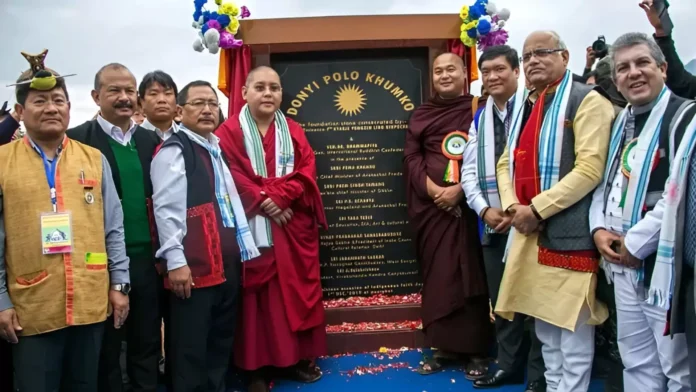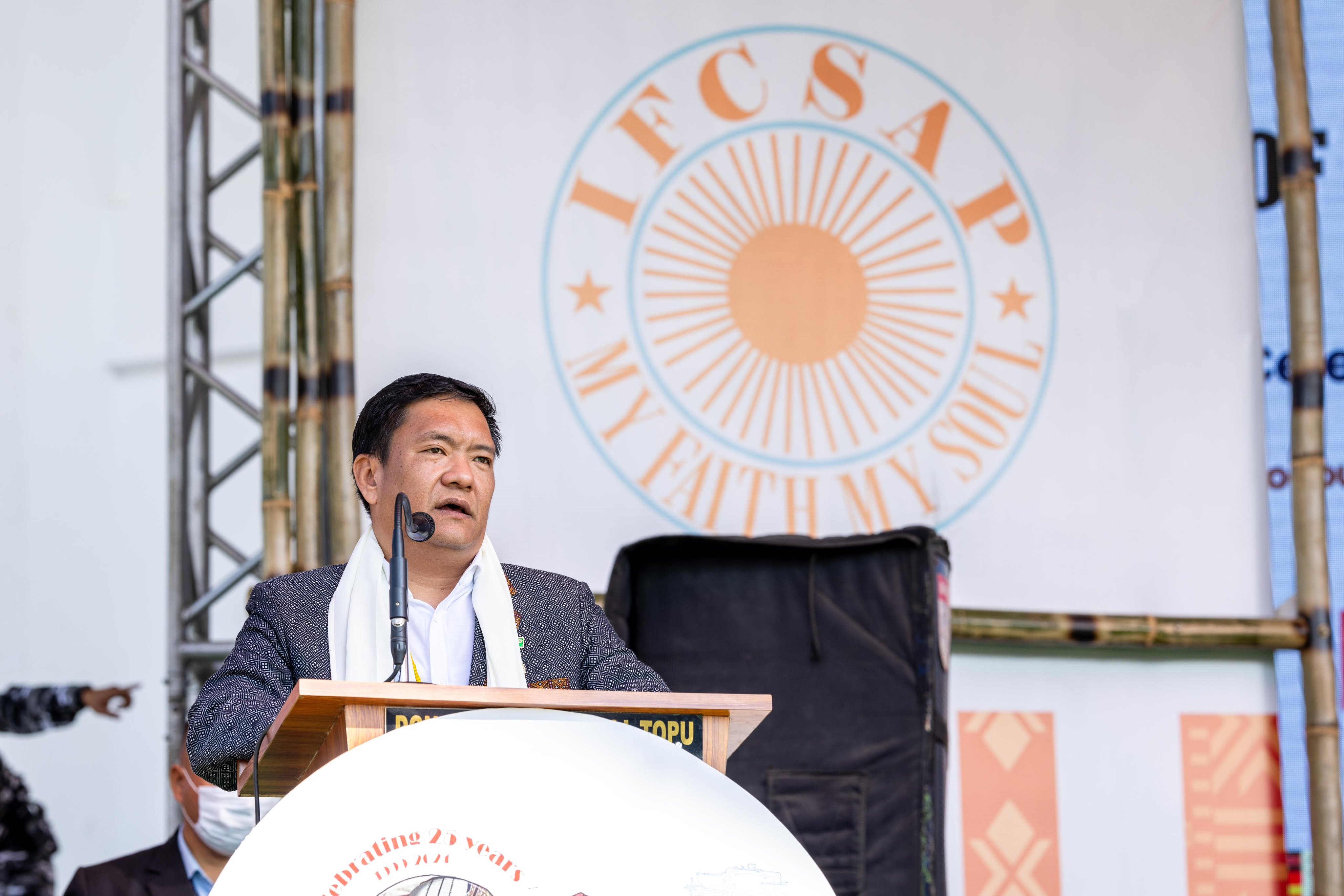Arunachal Pradesh Chief Minister Pema Khandu announced plans to implement the Arunachal Pradesh Freedom of Religion Act, 1978, which has remained dormant for 46 years. The declaration was made during the silver jubilee celebrations of the Indigenous Faith and Cultural Society of Arunachal Pradesh (IFCSAP) in Itanagar on Friday. The move follows a directive from the Gauhati High Court, which ordered the state government to frame rules under the Act within six months.
What is the Freedom of Religion Act, of 1978?
The Arunachal Pradesh Freedom of Religion Act, enacted during the tenure of the state’s first chief minister, P.K. Thungon, aims to prevent forced religious conversions and those carried out through fraudulent means or inducements. Violations of the Act can attract penalties of up to two years imprisonment and fines of ₹10,000. Despite its passage in 1978, the law has remained unimplemented due to the absence of requisite rules.
However, the Gauhati High Court’s directive on September 30, 2024, brought new urgency to the Act’s implementation. The directive came in response to a Public Interest Litigation (PIL) filed by Naharlagun resident Tambo Tamim, who sought the court’s intervention after over four decades of governmental inaction.
State’s Commitment to Indigenous Culture and Faith
Speaking at the event, CM Khandu emphasized the critical role the Act would play in safeguarding Arunachal Pradesh’s indigenous faiths and cultural heritage. “Soon, we will have a properly structured Freedom of Religion Act in place. This development will significantly contribute to preserving the state’s indigenous faith and culture,” he said.
Highlighting the interconnectedness of faith and culture, Khandu remarked, “Faith and culture are two sides of the same coin; one cannot exist without the other.” He cited global examples of disappearing Indigenous cultures and underscored the need for proactive measures to preserve Arunachal’s unique tribal heritage.
The chief minister also noted the government’s establishment of the Department of Indigenous Affairs in 2017, which collaborates with organizations like IFCSAP and community-based organizations (CBOs) to promote Indigenous cultures, languages, and institutions.
Role of the High Court and Drafting Rules
The renewed focus on the Freedom of Religion Act came after the Gauhati High Court’s directive, which underscored the necessity of finalizing the rules to operationalize the law. The court’s decision has prompted the state government to expedite the drafting process, ensuring the framework aligns with contemporary needs and sensitivities.
Khandu acknowledged the significant role of the judiciary in bringing attention to the long-neglected Act, stating that the process of drafting the rules is already underway. He reassured stakeholders that the structured implementation of the Act would respect the state’s pluralistic ethos while prioritizing the protection of Indigenous identities.

Collaborative Efforts for Cultural Preservation
Khandu lauded the Indigenous Faith and Cultural Society of Arunachal Pradesh (IFCSAP) and local volunteers for their dedicated efforts to preserve the state’s rich cultural traditions. He stressed that the responsibility of protecting Arunachal’s indigenous heritage rests not only with the government but also with the state’s 26 major tribes.
“Cultural preservation is a collective effort. The government can provide support, but communities must take ownership of their traditions to ensure they thrive in future generations,” Khandu added.
Union Minister of Tribal Affairs Jual Oram, who attended the event, echoed Khandu’s sentiments and commended Arunachal Pradesh for its proactive steps in cultural preservation.
Challenges and the Road Ahead
While the move to implement the Freedom of Religion Act has been welcomed by many, it also raises questions about its potential impact on the state’s socio-religious dynamics. Experts point out the need for a balanced approach that respects individual freedoms while safeguarding community interests.
The successful implementation of the Act will depend on transparent and inclusive policymaking, as well as sustained collaboration between the government, judiciary, and civil society. The process will also involve creating awareness about the Act’s provisions among the public to ensure its effective enforcement.
A Step Toward Cultural Resilience
The decision to operationalize the Freedom of Religion Act, of 1978, after 46 years, marks a pivotal moment in Arunachal Pradesh’s efforts to preserve its indigenous heritage. By addressing the dual priorities of cultural preservation and individual rights, the state aims to set a benchmark for safeguarding the rich traditions of its 26 tribes. As Arunachal Pradesh moves forward with drafting the rules and implementing the Act, it underscores a broader commitment to ensuring that its unique cultural and faith-based identities remain vibrant for generations to come.


